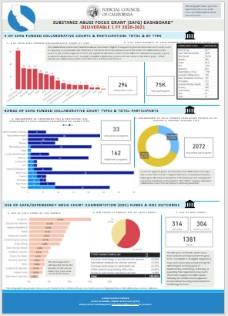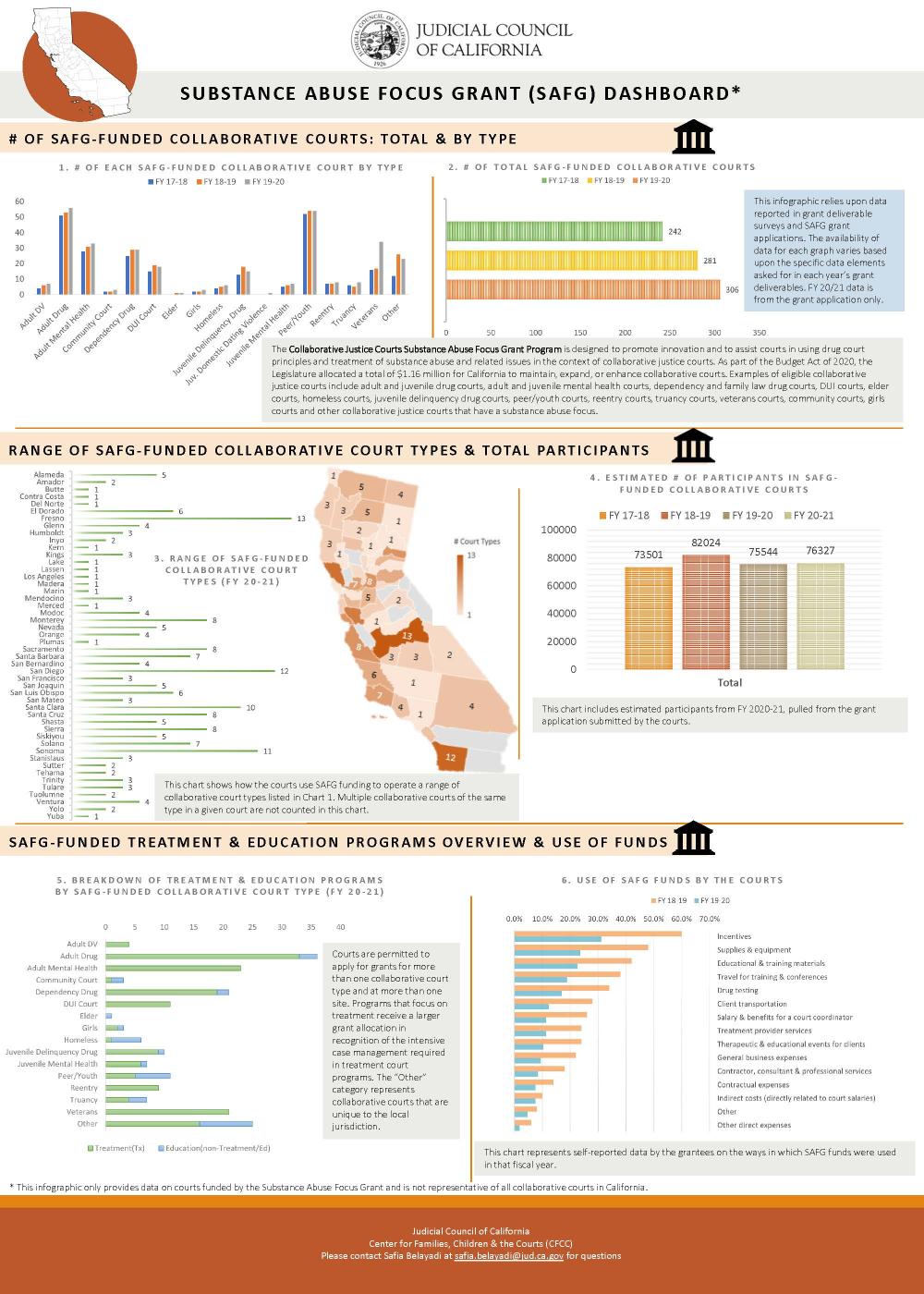Grants/Funding
Mental Health Services Act (MHSA)
Mental Health Services Act (MHSA) Information Sheet (updated for 2022) Proposition 63, the Mental Health Services Act (MHSA), was passed in 2004 to help expand mental health service accessibility statewide, with funding generated from a 1% surtax on incomes above $1 million. Since mental health impacts case types throughout the court, including family law, dependency, juvenile justice, and adult criminal cases, use of MHSA funds may be appropriate to support a wide range of grants and court programs.
|
MHSA Funding Webinar: A Guide for Courts to Access Funding The MHSA Funding webinar provides an overview and guide for courts to access funding through the Act. Proposition 63, the Mental Health Services Act (MHSA), helps expand mental health service accessibility statewide, with funding generated from a 1 percent surtax on incomes above one million dollars. Since mental health issues affect family law, dependency, juvenile justice, adult criminal and other case types, use of MHSA funds may be appropriate to support a wide range of court programs. |
Funding of Collaborative Courts in California
California collaborative courts receive funding from federal, state, and local sources. The Judicial Council of California Collaborative Justice Program is a key partner in the administration of many of these statewide grant initiatives.
For More Information
About grants for collaborative justice programs: Email CollabJusticeComm@jud.ca.gov
About the Byrne SCIP grant: Visit SCIP RFP
The Board of State and Community Corrections (BSCC) is now accepting proposals for Proposition 47 funding for mental health and substance abuse treatment programs, including Proposition 36 implementation. Interested applicants can find more information here: https://www.bscc.ca.gov/s_bsccprop47/
Substance Abuse Focus Grant
Collaborative Justice Courts Substance Abuse Focus Grant (SAFG) Program
The Collaborative Justice Courts Substance Abuse Focus Grant (SAFG) Program is a non-competitive grant available to all county courts. The grant is designed to promote innovation through helping grantees maintain, expand, or enhance their collaborative courts. It has been funded annually through the California Budget Act since 1998. In 2023, the Legislature allocated a total of $1.16 million for the grant.
Examples of eligible collaborative justice courts include adult and juvenile drug courts, adult and juvenile mental health courts, dependency and family law drug courts, DUI courts, elder courts, homeless courts, juvenile delinquency drug courts, peer/youth courts, reentry courts, truancy courts, veterans’ courts, community courts, girls courts and other collaborative justice courts that have a substance abuse focus.
Dependency Drug Court (DDC) Augmentation Grant
Courts applying for the SAFG that have a family treatment court or a dependency drug court are invited to apply for supplemental funds through the Dependency Drug Court (DDC) Augmentation Grant. A total of up to $75,000 of federal Court Improvement Project (CIP) funds is available and divided amongst all eligible dependency drug courts that wish to receive this additional funding.
Resources
|
Image
|
Guide for Collaborative Courts: Applying to the SAFG and DDC Augmentation Grants An informational guide with frequently asked questions (FAQs) for collaborative courts applying to the SAFG and DDC grants. |
|
Image
 |
SAFG and DDC Augmentation Grant Infographic (FY 2020/2021) The following infographic helps showcase how data from the SAFG and DDC Augmentation Grant deliverable surveys captures the amazing work being done by SAFG-funded collaborative justice courts. |
|
Image
 |
SAFG and DDC Augmentation Grant Infographic (FY 2017/2018 – FY 2019/2020) The following infographic helps showcase how data from the SAFG and DDC Augmentation Grant deliverable surveys captures the amazing work being done by SAFG-funded collaborative justice courts. |